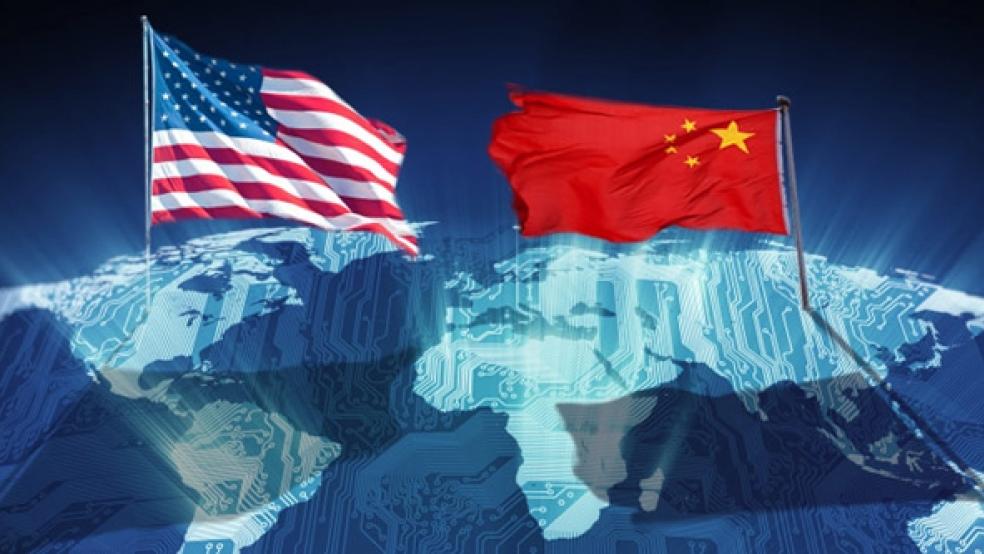A trade argument with China involving a set of obscure – but necessary – minerals could have at least one favorable effect on the U.S. economy: the reinvigoration of a mining sector that has been moribund for years.
The looming fight is over 17 metals known as “Rare Earth Elements” which occupy the upper strata of the periodic table and function as an indispensible suite of inner gears for consumer electronics and wind turbines – the very gadgets necessary for a first-world industrial economy. A Toyota Prius is said to contain ten pounds of a rare earth named lanthanum in its nickel-metal hydride battery.
RELATED: The Race for Rare Earth
China has a lock on most of the production of rare earths, thanks to its developed mines in Jiangxi province, and last week, the frustration over the pace of its exports boiled over into a legal broadside. The U.S., Japan and the European Union joined to register a “request for consultations” with officials at the World Trade Organization which will likely lead to adjudication, elevating President Obama’s credentials as a tough negotiator. But even then, there is no evidence that China would relax its policies in the face of an unfavorable judgment: its leaders insist they now want to retain most of it for strategic domestic use instead of selling it off on the world market.
The dispute is expected to keep the prices lofty for the rare earths minerals, which is bad news for manufacturers like Siemens, GM and Apple that depend on the costly product as a lifeline to production. But there will be at least one temporary winner: the Colorado mining company Molycorp which owns the biggest and most promising rare earth mine in the United States, at a wide spot in the road called Mountain Pass, Calif.
An accident of prehistoric geology meant that rare earth minerals would form in high concentrations in the same dry Mojave Desert valley whose gentle grade provided the easiest overland route between Las Vegas and Los Angeles. Cars and trucks whip by on Interstate 15 barely a quarter-mile away from the edge of a mine which is seeing a frenetic burst of recent activity, thanks to the near-embargo from China.
Discovered during the Cold War uranium boom in the 1940s, it found profitability as a source of europium – the rare earth mineral which made vivid colors of red in cathode ray television tubes. But as television technology advanced, the mine seemed obsolete and environmentalists complained about radioactive spills onto sensitive desert ground. New owner Chevron shuttered it in 2002. Now the mine is under new ownership, which raised $500 million in a stock offering, and gearing up in a way not seen since I Love Lucy was in its first season.
“We’ve got a lot of stockpiles out there now,” said Jim Sims, Molycorp’s vice president for corporate communications. “Our crusher is now up and running.”
Impurities in rare earth ores – including radioactive components like uranium and thorium – are extremely difficult to separate from the end product. Though the mine is now producing up to 2,800 short tons per days, the cracking facility is not yet online, said Sims. By the fall, however, Mountain Pass should be in a position to at least incrementally reduce China’s current share of 97 percent of the world market. Sims declined direct comment on the WTO dispute.
"These are issues for the respective governments to work through,” he said in an emailed statement. “As for Molycorp, we have to prepare for and compete in the market as it exists today.”
For its part, China complains that it has borne the burden of the world’s demand for rare earths for more than a decade and has been unfairly compensated for the investments it made in metallurgy and ore processing when other nations – such as the U.S. – let their supplies go fallow in response to market forces. While the vast majority of production now comes out of China, it can geologically claim only about a third of the world’s known reserves.
An editorial in People’s Daily said that the government “has every right” to make independent decisions about rare earths, which it said had been sold for “irrationally low prices” for years, in spite of the environmental damage to areas around its mines in Jiangxi. Exporting rare earths for use abroad also does not have nearly the economic multiplier effect of using them to make batteries, wind turbines and computers in domestic industries on the mainland.
China has wielded its “rare earth muscle” in the recent past. In September 2010, China delayed exports of the material to Japan for several weeks after a Chinese fishing captain was detained by the Japanese navy after a collision. Panicked automakers in Tokyo began trying to find ways to trim the amount of lanthanum used in car batteries. One year later, in September 2011, Chinese mining officials said that general production would be curtailed at eight mines – in effect, banking the material in the ground.



